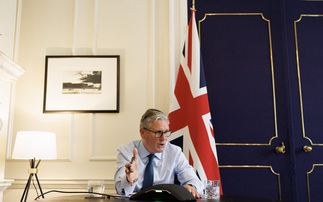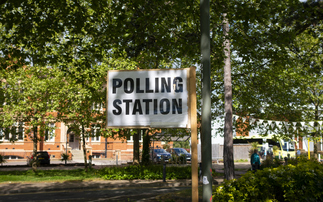Current pledges to cut carbon emissions will cost developing countries 50% more than if global warming is limited to 2C, Oxfam report says
Developing countries will have to pay $270bn extra each year to adapt to the impacts of climate change if global pledges to cut greenhouse gas emissions do not increase, according to a new report by Oxfam.
Plans submitted by more than 170 countries ahead of crunch UN climate change talks in Paris next week are likely to lead global temperatures to rise by 2.7-3C above pre-industrial times.
According to the aid agency's report, it would cost developing countries $790bn every year to adapt to this scenario, 50 per cent more than the $520bn it would cost them to adapt to a 2C world, the target for avoiding catastrophic climate change agreed at previous UN conferences.
If these adaptation costs are not met, in a 3C world the economies of developing countries are likely to shrink by $1.7tn every year, equivalent to 1.3 per cent of their GDP, the report says.
Tim Gore, Oxfam's head of food and climate policy, told the Guardian that developing countries are "stuck between a rock and a hard place" unless pledges become more ambitious.
Although the pledges, known as Intended Nationally Determined Contributions, have already been submitted to the UN, many parties including the US, China and the EU want to see a review mechanism built into any deal at Paris to increase the pledges in the future.
Gore said: "[Paris] is not our one single shot at solving the climate crisis. We need to make sure there is a strong requirement for countries to revisit and strengthen their emissions cuts urgently and periodically - or we're locking in a 3C world."
At the Copenhagen climate summit six years ago, developing countries were promised $100bn a year to help mitigate climate change and adapt to its consequences. Around two-thirds of this money has already been paid.
But last year just 16 per cent of the climate aid money was used to help the world's poorest countries adapt to impacts such as flooding, drought and other severe weather events.
Instead most climate finance already processed has been spent on preventative measures - such as investments in renewable energy - to help rein in climate change.
Oxfam estimates that if the total sum given for adaptation to date was divided among all small-holder farmers in developing countries, each individual would receive $3, equivalent to the price of a cup of coffee.
This article first appeared at the Guardian
BusinessGreen is part of the Guardian Environment Network








